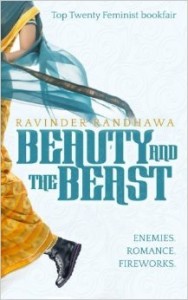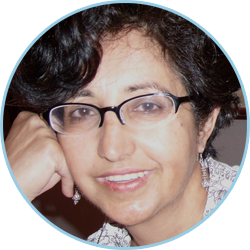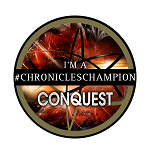Today I am pleased to welcome Ravinda to the blog telling us why she writes. Thank you Ravinda!
Why We Write
I knew at a very young age that I wanted to write. A strange knowing in a young child, whose family circle was devoid of writers, journalists or any other literati. The family may not yet have produced authors and artists but it was a family which valued knowledge and learning. We were taught that books were always to be treated with care and respect. As a child, I remember being really shocked when I saw a friend scribbling and drawing in her book, and when I asked her about it she couldn’t understand why it mattered. Personally I couldn’t understand why it didn’t matter. Books are precious. This is akin to Salman Rushdie’s childhood story about having to kiss a book if it fell to the floor before putting it back on the bookshelf.
Books have always been a passion and I was the traditional bookworm, always having a book under the pillow, or truanting from my chores, nose buried in a book. The love of books doesn’t always lead to the urge to write so there must be some mystery, some unknown part of our soul and psyche propelling us writers to spend our lives creating stories which we hope will entertain, convey some truth and meaning, or purely provide escapism. The desire to tell stories and the desire to listen to them has existed throughout the ages and across the world. Could it be that we humans do need more from our brief existence than merely the satisfaction of our physical needs? That we have an insatiable desire to engage with greater vistas, ideas and philosophies?
The conviction that writing is my vocation has been one of the fixed things in my life, accompanying me from childhood to maturity. Like a companion, always there at my side and existing in the sense of a journey, not a destination. I’m sure I’ll be tapping away on my last day on this planet, worrying about how to formulate this or that sentence, trying to decide whether a comma or semi-colon is needed and looking forward to getting stuck into the next revision. Unlike some writers I love revising, for that’s when the novel begins to develop, stretch and gather depth.
I used to think that writing was far too noble an art for me to aspire to (not that it put me off) but I used to go around calling myself a ‘would-be’ writer. Even now, after having had three acclaimed novels published and many short stories, I sometimes think ‘Wow, how did that happen?’ I remember holding the published copy of my first novel, A Wicked Old Woman, in my hands with a sense of pure disbelief. How could those handwritten pages, those typed sheets have been transformed into a book that was as bona fide as any other? How could it actually be sitting in bookshops and libraries, being bought and borrowed by actual readers?
Publishing the first novel is always a milestone but it doesn’t mean that writing subsequent novels becomes easier. In fact, I think it becomes harder because you demand more from yourself and become more critical. Perhaps that feeling of always having to go back to the baseline and start from scratch, arises from the different demands of each novel, the different challenges of story, structure, plot and character. In addition, I do think the more you write the more critical you become of your own work. That heady outpouring of the first novel, never really occurs again, because with each work, the desire to develop, extend and refine becomes stronger.
The urge to write is also the urge to have my say about the world. Thousands of writers, Shakespeare, Dickens and others have used fiction to have their rants and raves about the world, whether the subject is treachery, Victorian workhouses or political corruption. For me, fiction is a truth teller; telling the truth with tenderness, humanity and nuance. Whether it deploys the structures of comedy, tragedy or satire, fiction accomplishes the amazing feat of making the reader forget themselves and experience the emotions, dilemmas and dangers of someone else, as if in this way, more is conveyed than is actually being said. Fiction provides an ‘immersive’ experience in a way that newspaper articles, which with all their information, statistics and research never can. The deceptive art of ‘making up stories’ often succeeds in leaving the reader haunted by characters and events, which enrich the reader’s life experience, allows them to extend the boundaries of their own lives, and look at the world in a more thoughtful way.
Writing is that strange act of creating something out of nothing. I’m not quite sure where the urge comes from but the challenge is always there: to create an entertainment or a truth which captivates and enthrals, engages the heart and mind. It’s wonderful when a reader says ‘I got lost in a book.’
About Beauty and the Beast: Enemies,Romance, Fireworks.
‘Problems? Confusions? Contradictions? I got them all and if you’ve got them, then FLAUNT them is my motto.’ Meet Harjinder (aka Hari-jan): ‘A’ level student, supermarket worker and desperate journalist. Feisty and impulsive, Hari-jan can’t refuse a dare and to make matters worse has fallen in love with the wrong boy. Her best friend Ghazala has taken to wearing the hijab and mentoring racists. Can Hari-jan battle through the hurdles and win her man? Can Ghazala work out how to do Good in her own way? A sparkling, coming-of-age novel about life, love and friendship.
Find out more here: http://www.ravinderrandhawa.com/
Follow Ravinder on Twitter here: https://twitter.com/RealRavs
Purchase Information: http://www.amazon.co.uk/Ravinder-Randhawa/e/B00JABUL1S/ref=dp_byline_cont_pop_book_1
Happy Reading Folks!







